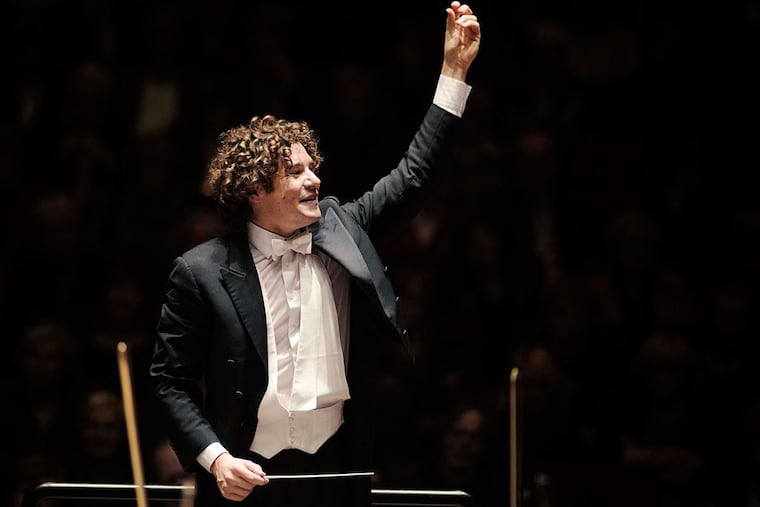Ticciati, Phila Orchestra shine new light on Schumann, Mozart
Is it possible to accept in your mind's ear two radically different interpretations of the same work, but both absolutely ideal?

Is it possible to accept in your mind's ear two radically different interpretations of the same work, but both absolutely ideal?
To anyone taken with Wolfgang Sawallisch's fatherly warmth, authority, and carefully rationed passions in Schumann, Robin Ticciati's Schumann Symphony No. 4 Thursday night in Verizon Hall must have arrived like a blinding flash on the horizon.
For me, even as a longtime Sawallisch adherent, Ticciati's light revealed important contours. Using period-instruments concepts, such as a leaner sound, the 32-year-old British conductor favored very fast tempos and lean textures. Rather, he used these ideas, where applicable, to underscore expressive details that might otherwise go unnoticed.
The piece rolled through like a storm - the driving intensity and probing of the first movement, the selective suspending of string vibrato in the second, the accent on violent rhythms in the scherzo, and a fearsome building of momentum at the end. For musicians, following Ticciati closely was a survival skill. The detail in his phrasings - as well as his penchant for stepping away from the inner beat temporarily to give an individual phrase, note, or idea a life of its own - meant he needed the kind of total control a pianist has over his keyboard.
Remarkably, Ticciati got buy-in from the players (who otherwise often prefer slowing down, the better to hear their own plushness). In terms of dynamic individualists who lead the orchestra on a regular basis, Ticciati with this Schumann joins an exclusive club.
You might have felt the strong personality coming in the opening seconds of the concert. The first three notes of Schumann's Overture to Manfred were furiously paced, freighted with all the angst of the story's title character. And then, as contrast, the next music tells of his pain with a series of crushing harmonic progressions. Ticciati was clearly unspooling the story, a quality that grew only stronger when he developed a middle-portion lull to the short piece that has rarely been accentuated so beautifully.
It was fascinating to see, though, that when joined by an equally strong artistic presence on stage, Ticciati deferred. Jonathan Biss was soloist not in the Schumann Piano Concerto, which might have made some sense, but in Mozart - the Piano Concerto No. 27 in B Flat Major, K. 595. Mozart became the pool of serenity in this concert, particularly with the way Biss made the first movement a relaxed essay on legato. His tone is unfailingly gorgeous. Biss also weighs bold expressivity in ounces rather than pounds - making him a very Sawallisch kind of soloist.
Additional performance: 8 p.m. Saturday at Verizon Hall, Broad and Spruce Streets. Tickets: $10-$147. Information: 215-893-1999 or www.philorch.org.
215-854-5611